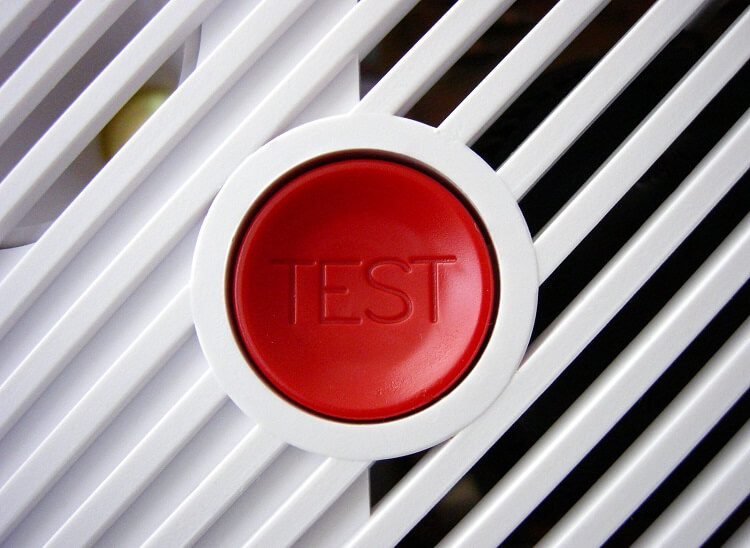
As a tenant or homebuyer, the safety and health of a home is a priority you cannot compromise. Have you found yourself at loggerheads with your landlord over the health and safety conditions at your home in Colorado? Lodging a complaint with them or a government agency may seem like a long and tiring process, but we assure you that it is not. For you to be able to comfortably speak out and seek a remedy to the issues in your home, you need to know what the law says about the condition o your home and the options that are open to you.
We have broken down The Code of Colorado Regulations and The Residential Tenants Health and Safety Act to let you know what the standard is concerning your home condition, the issues that affect its habitability and how you can seek recourse under these laws. These are some of the most critical laws on health and safety requirements.
The Code of Colorado Regulations
This code provides for features and standards that are mandatory for all houses in Colorado and assure your health and safety. You must check and verify that all these features are present and in good condition before you sign a lease or rent agreement. Do not agree to pay and have repairs done later to avoid wasting your time and money. These regulations include:
- The ground area of your home should be well graded, surfaced and drained. It should not have any holes or depressions where water can collect.
- Your property should have a well-constructed water system that is protected and designed to guarantee a safe water supply for all your domestic needs.
- The home you occupy ought to have a waste disposal system that is properly maintained.
- Your premises should have vermin proofing and extermination services to maintain safe living conditions.
- The house ought to be constructed expertly with proper roofing to protect your family from weather elements, make cleaning easier and provide privacy. These materials should be clean, in good condition and of standard quality.
- The walls and floors should be smooth and properly constructed to prevent water from seeping in and compromising their quality.
Your kitchen ought to have all of the following features:
- A closed-in sink with a vent and access to hot and cold running water
- A refrigeration system that is approved together with cooking appliances that are installed and maintained properly.
- A cabinet system for you to store your cooking utensils, dishes and foods.
- All sink and cabinet tops should have a smooth and washable finish that does not absorb water or other liquids.
- The kitchen should have proper ventilation that lets in outside air.
This code is a guide to landlords and property owners on how they need to construct and maintain their property to avoid ending up on the wrong side of the law. Failure to follow these regulations makes your landlord liable to pay a fine to the local government or face more stringent penalties.
The Residential Tenants Health and Safety Act
This law was enacted to provide additional protection for tenants and homebuyers regarding the habitability of a property. It provides a warranty of habitability which is implied by the landlord when you rent a property. If it is not a safe place for you and your family to live, the landlord will be in breach of that warranty, and you have a right to be protected under this Act.
As a tenant, you can always inform the landlord of the issues in your home by sending them a written notice of those habitability concerns. If they do not resolve those issues or take steps towards having them resolved within a reasonable time, you have recourse under this law. Your landlord is obliged by the law to take action on any property conditions that endanger your health, life or safety within 24 hours. They are also obliged to respond with action to repair your home within 72 hours if the property you are currently occupying is uninhabitable.
The Residential Tenants Health and Safety Act classifies the following conditions to mean that a property is not habitable:
- A home without the standards of functioning household furnishings and plumbing stipulated by the law is not habitable. All appliances have to be in working order and adequately maintained to ensure the safety of your family.
- Property that is infested in mould brought about by dampness in the house is uninhabitable. Such conditions can endanger your family and should be rectified immediately.
Under this new Act, you have the right to visit any of the county courts and lodge your complaint with them if your landlord has been reluctant to resolve your home condition.
It is essential to remember that your landlord can only be found liable for negligence regarding your home if you have served them with written notice of all the problems you would like addressed. Unlike before, you do not have to pen down your notice or have it delivered to their doorstep. You can send an email or text message, and the written notice will have been served. If your landlord does not respond within the stipulated time, they will be found liable under this Act.
The Act also provides you with the right to terminate your rental agreement. If the habitability issue that led to the original breach recurs less than six months after the repair, you can terminate the agreement after notifying the landlord 14 days in advance. If the matter stems from a broken or faulty appliance, your landlord is obliged by the Act to fix it within four days, after which you are free to terminate the agreement if they do not remedy the situation as required.
Additional Provisions
- Under certain conditions, you may be allowed to deduct the cost of repairs or expenses incurred in fixing a habitability issue from several rent payments.
- You can give your landlord notice of a habitability problem in your home and request that they provide you and your family with an almost similar residence during the duration of the repairs and at no additional expense to you.
- You are no longer required to notify the local government before suing your landlord for breach of your habitability warranty.
- The Act states that your rental agreement should not require you to take up any responsibilities regarding the condition of the property in question.
- In case of a single-family residence, the Act allows for you and the landlord to reach an agreement in writing that requires you to perform particular maintenance repair and re-modelling tasks. That is only allowed where the landlord does not get a subsidy from a government institution.
- The Act forbids a landlord to retaliate against you for making a complaint in good faith either to them or to a government representative concerning an issue that makes your home uninhabitable or threatens the health and safety of you and your family. If they do retaliate, you may be eligible to receive damages in the form of money.
Conclusion
We sincerely hope that this post has provided you with the necessary insight into property safety requirements in Colorado and your rights as a tenant. Reading through these statutes can be a bit of a pickle because they come in hundreds of pages and complex legal language. We have tried to translate them into simplified points that will help to answer all your health and safety questions. Do not keep living in an uninhabitable home and risking your life and that of your family because you do not want to aggravate your landlord. They are obliged by the law to provide you with standard living conditions, and you should accept nothing less.
